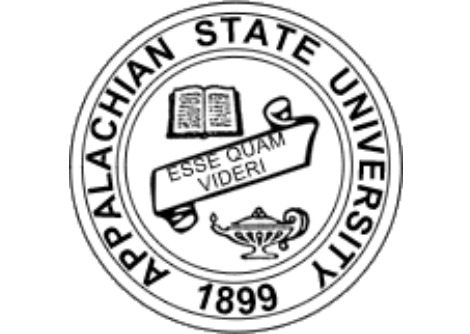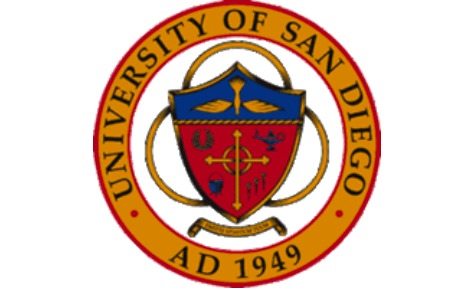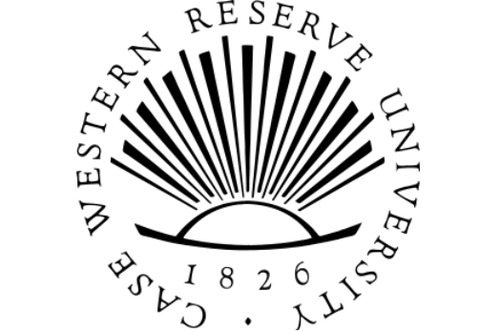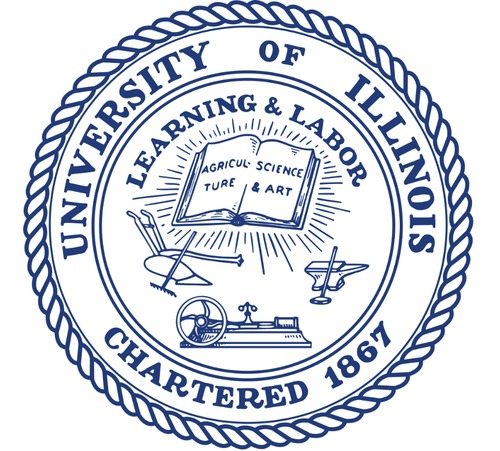
Now more than ever, it is imperative that our infrastructure, scientific research methods, construction and design, and political systems adapt to changing trends and needs in order to ensure the safety and survival of the planet. In order to accomplish such a mammoth endeavor, it is imperative that individuals receive a proper, thorough education in their field. There are many different sectors of the sustainability discipline, and this list of the Top 10 On-Campus Masters in Sustainability Degree Programs will help introduce curious students to impressive and challenging institutions.
Whether students are searching for an education and career in politics, research, engineering, or advocacy, there is a school and major on this list that will suit everyone’s needs, budgets, and interests. The editors of OnlineSchoolsCenter.com collect the most important and relevant data about colleges, universities, and campus facilities from various highly respected sources and offer them in a simple format that is easy to understand. In developing this list, OnlineSchoolsCenter.com chose not to list the schools in an ordered way but instead highlighted ten of the very best programs, all of which have their own unique strengths.
***
APPALACHIAN STATE UNIVERSITY

Program Standouts:
According to their impressive website, “The Graduate Program within the Department of Sustainable Technology and the Built Environment provides advanced education, research opportunities, and professional development in selected technical areas. The program furthers the Department’s vision of “Innovative Solutions for a Sustainable Future” by building on the recognized excellence of our undergraduate degree programs.”
Campus Location: Boone, NC
Accreditation: Southern Association of Colleges and Schools
Tuition and Fees:
- $565 per 0-2 credit hours—in-state tuition
- $2,133 per 0-2 credit hours—out-of-state tuition
- $435 per credit hour—university fees
Financial Aid: Federal and state grants, loans, scholarships, and student employment opportunities.
Acceptance Rate: 63%
Admission Considerations:
Applicants will be required to submit official transcripts, letters of recommendation, a personal essay of intent, a current resume with relevant experience within the field, and GRE test results.
Program Options:
Master of Sustainable Technology
- Renewable Energy Engineering
- Sustainable Design and Construction
Course Flexibility:
These programs are designed for students with a solid background in sustainable development, business, engineering, architecture, or any other relevant field of sustainability. These well-developed programs are in-depth and quite challenging, allowing students to climb further in their area of expertise.
FOR MORE INFORMATION, CLICK HERE
CLARK UNIVERSITY

Program Standouts:
As the demand for intelligent, skilled, and well-educated sustainability professionals increases, Clark adapts its business models and curriculum to stay as relevant and applicable to both for-profit and non-profit industries as possible. Graduates from one of the finest programs in the nation will be sought out in the job market.
Campus Location: Worcester, MA
Accreditation: New England Association of Schools and Colleges
Tuition and Fees:
- $4,100 per unit (14-week course)—full-time tuition
- $2,050 per half-unit (7-week course)
- $80 per year—activity fee
- $1,700 one time—full-time services fee
- $150 one time—contingency fee
- $100 one time—enrollment fee
Financial Aid: Merit scholarships, student loans, and payment plans.
Acceptance Rate: 68%
Admission Considerations:
Applicants are expected to have a detailed current resume that has experience relevant to the degree, thus adding to the diversity and breadth of the program. All must submit an application, including test scores, undergraduate academic record, professional experience, personal statement, and letters of recommendation.
Sampling of Coursework:
- Decision Methods for Environmental Management and Policy
- Eco-entrepreneurship
- Creating Effective Organizations – Strategic Decision Making
Course Flexibility:
Students will be a part of creating effective change within the community during their career in this program. Students work with local businesses to establish strong sustainability practices using what they learn in the program, but also what they create themselves with the guidance of strong professors and real-world situations.
FOR MORE INFORMATION, CLICK HERE
HUMBOLDT STATE UNIVERSITY

Program Standouts:
This program is designed to give students a broad scope of business disciplines by forming the curriculum around several departments. Students do not have to have any prior experience in sustainability to gain a massive amount of knowledge and experience in this new and important field.
Campus Location: Arcata, CA
Accreditation: Western Association of Schools and Colleges
Tuition and Fees:
- $2,600 per 0-6 units—part-time tuition
- $4,231 per 6.1+ units—full-time tuition
Financial Aid: Grants, scholarships, work-study, and loans
Acceptance Rate: 83%
Admission Considerations:
The following criteria is required for all applicants to this program: Completion of BA or BS Degree, G.P.A. minimum 2.75, GRE minimum score of 300 or GMAT minimum score of 500, approval of Graduate Coordinator, foundation courses in accounting, economics, finance and statistics.
Sampling of Coursework:
- Financial Management for Sustainable Growth
- Accounting for the Triple Bottom Line
- Sustainability/Ethics
Course Flexibility:
This MBA program gives students a massive amount of knowledge and skill in the department of business as well as sustainability practices, and living in the Pacific Northwest gives students the proverbial foot in the door into the world of not-for-profit and for-profit industries.
ALLIANT INTERNATIONAL UNIVERSITY

Program Standouts:
Focusing the degree in 5 “strands,” students at Alliant International University have a tiered approach to a Masters of Business Administration with a concentration in Sustainability which they call, The Bright Green MBA. It was created by weaving other departments curriculums to create one environmentally focused degree.
Campus Location: Alhambra, CA
Accreditation: Western Association of Schools and Colleges
Tuition and Fees:
- $895 per credit hour—tuition
Financial Aid: Federal and state grants, military benefits, and payment plans.
Acceptance Rate: 49.2%
Admission Considerations:
All applicants must hold a degree from an accredited undergraduate institution and must submit official transcripts. Other required documentation includes a personal essay, letters of recommendation, and an interview which can be done in person, over the phone, or by video chat.
Program Options:
- Strategy and Sustainable Development
- Entrepreneurship/Intrapreneurship and Innovation
- Sustainable Products, Services and Operations
Course Flexibility:
Coursework is delivered in a hybrid format—students will be required to attend classes and complete projects and internships, as well as online classes and programs that will give students more time to focus on a profession and outside projects.
FOR MORE INFORMATION, CLICK HERE
UNIVERSITY OF SAN DIEGO

Program Standouts:
“Students develop leadership skills to face complex managerial decisions to align economic wealth creation and social value. A focal point is on management and governance systems, as well as personal values, leading to responsible conduct by firms and their employees.”
Campus Location: San Diego, CA
Accreditation: Western Association of Schools and College; Association to Advance Collegiate
Schools of Business
Tuition and Fees:
- $1,380 per credit hour—tuition
- $10.50 per 3 credits—student association fee
Financial Aid: Need-based aid, graduate assistantships, merit scholarships, Ahlers Center for International Business Study Abroad Scholarships, on-campus employment.
Acceptance Rate: 48.9%
Admission Considerations:
Students need two professional letters of recommendation and a degree from an accredited undergraduate institution, responses to three supplemental essays and an optional essay, official transcripts, professional resume, GMAT scores, and an $80 application fee.
Sampling of Coursework:
- Business Leadership and Spirituality
- Business Initiatives with the Base of the Pyramid
- Sustainable Global Supply Chain Management
Course Flexibility:
This MBA with a concentration in Corporate Social Responsibility and Sustainable Enterprises gives students a well-rounded education in Business Administration and a solid understanding of sustainability platforms within modern businesses.
FOR MORE INFORMATION, CLICK HERE
UNIVERSITY OF PITTSBURGH

Program Standouts:
The University of Pittsburgh offers a comprehensive and highly in-depth Masters of Civil Engineering with a Concentration in Sustainability and Green Design that prepares students for a career of redesigning out-dated infrastructures to make way for more energy efficient methods.
Campus Location: Pittsburgh, PA
Accreditation: Middle States Commission on Higher Education
Tuition and Fees:
- $1,898 per credit hour—part-time, out-of-state tuition
- $20,060 per term—full-time, out-of-state tuition
- $1,158 per credit hour—part-time, in-state tuition
- $12,201 per term—full-time, in-state tuition
Financial Aid: Fellowships, assistantships,
Acceptance Rate: 56.1%
Admission Considerations:
Students must hold a degree in engineering or hard science from a regionally accredited academic institution with a cumulative GPA of 3.0 or higher. Students are required to submit GRE test results with their online application.
Research Opportunities:
“The SGD group represents the next generation of interdisciplinary education and research in environmental science, engineering, and sustainability. SGD brings together forward-looking and enthusiastic faculty with the requisite experience for coordinated interdisciplinary and collaborative approaches towards research, education, and outreach. Through our research and outreach, we tackle some of the most pressing concerns of the 21st century.” —Sustainability and Green Design Group
Course Flexibility:
This intensive program gives students the option to join a career in civil engineering with new sustainability needs and practices. Coursework reflects many disciplines of engineering and green design giving students a highly comprehensive education in the field.
FOR MORE INFORMATION, CLICK HERE
CASE WESTERN RESERVE UNIVERSITY

Program Standouts:
Case Western Reserve offers a most impressive Master of Science in Positive Organization Development and Change, which is unique in that it prepares students to work with companies and private industries to effect positive change within businesses. It gives students a distinct advantage within the job market as graduates are in very high demand.
Campus Location: Cleveland, OH
Accreditation: North Central Association of Colleges and Schools
Tuition and Fees:
- $1,250 per credit hour—full-time 1st year tuition
- $1,870 per credit hour—full-time 2nd year tuition and part-time tuition
Financial Aid: Institutional grant assistance, stipends and assistantships, and loans.
Acceptance Rate: 41.9%
Admission Considerations:
Students must have 5-7 years experience and full-time employment, a bachelors degree from a regionally accredited institution, a desire to improve human systems and make a positive impact, and must align with the values of the program.
Program Options:
- Sustainability for Strategic Advantage
- Leading Change from a Complexity Perspective
- Global Citizenship and Multi-Cultural OD: International Study Tour
Course Flexibility:
This masters “curriculum draws from strength-based approaches such as appreciative inquiry, emotionally & socially intelligent leadership, and sustainable enterprises. MPOD uses experiential learning and action research methods wrapped in an intensive, applied, and highly interactive residency-based, cohort design.”
FOR MORE INFORMATION, CLICK HERE
UNIVERSITY OF ILLINOIS URBANA—CHAMPAIGN

Program Standouts:
In the Department of Energy and Sustainability Engineering, the University of Illinois Urbana—Champaign educates leaders of the discipline who, upon graduation, continue to lead the field in development and research. With a degree from this world-renowned program, students will be able to fill the rising demand in the workforce all over the globe.
Campus Location: Champaign, IL
Accreditation: North Central Association of Colleges and Schools
Tuition and Fees:
- $17,628 per academic year—in-state tuition
- $31,626 per academic year—out-of-state tuition
Financial Aid: Assistantships, fellowships, loans, grants, and awards
Acceptance Rate: 62.4%
Admission Considerations:
Along with their application, an application should submit official transcripts from a regionally accredited college or university. Students are expected to have a 3.0 GPA or higher for the last 2 years of undergraduate study. GRE test scores are not required, however, it would be prudent to take the GRE so that scores are available on request.
Program Options:
- Biomass Energy Resources
- Chemistry and Chemical and Materials Engineering
- Electrical Energy Conversion, Transmission, and Distribution
- Energy Markets, Reliability, Safety, and Security
- Environmental Engineering for Energy Applications
- Geologic Energy Resources
- Nuclear Power Generation
- Solar Energy and Climate Change
- Thermal Energy Systems and Combustion Engines
- Wind Energy
Course Flexibility:
There is a massive opportunity for specialization in an area of energy and sustainable engineering at the University of Illinois Urbana—Champaign. No matter the discipline, students are trained in a general base of energy and sustainability courses and also concentrate in specific areas.
FOR MORE INFORMATION, CLICK HERE
UNIVERSITY OF PENNSYLVANIA

Program Standouts:
Students enrolled in the Master of Environmental Studies degree with a concentration in Environmental Sustainability, benefit from both the rich diversity of course offerings and the sustainability programs run by Penn faculty and students on campus, in Philadelphia and around the world.
Campus Location: Philadelphia, PA
Accreditation: Middle States Commission on Higher Education
Tuition and Fees:
- $5,380 per credit hour—tuition
- $336 per credit hour—general fee
- $150 per term—program fee
Financial Aid: An array of federal, state, and institutional scholarships
Acceptance Rate: 7.7%
Admission Considerations:
All applicants must submit official transcripts from an accredited undergraduate institution, a personal statement of career and academic goals, valid work experience, a current resume, GRE scores, TOEFL scores for international students, and letters of recommendation.
Program Options:
- Environmental Advocacy and Education
- Environmental Biology
- Environmental Policy
- Environmental Sustainability
- Resource Management
- Urban Environment
Course Flexibility:
The Master of Environmental Studies program offers a wide range of course options that allow you to create a program specific to the requirements of the area of sustainability you are most interested in pursuing and will make you uniquely qualified for the professional opportunities you seek.
FOR MORE INFORMATION, CLICK HERE
CORNELL UNIVERSITY

Program Standouts:
“Cornell’s graduate programs are particularly flexible, allowing you to design your own program in collaboration with Cornell faculty members.” Students may be studying a certain area or focus of sustainability, yet have the opportunity to draw from other schools and departments within the university.
Campus Location: Ithaca, NY
Accreditation: Middle States Commission on Higher Education
Tuition and Fees:
- $29,500 per year—environmental engineering tuition
- $20,800 per year—environmental design and analysis tuition
Financial Aid: Institutional assistantships and fellowships and federal, state, and institutional loans
Acceptance Rate: 14%
Admission Considerations:
Students must submit GRE results, a personal statement, letters of recommendation, official transcripts from a regionally accredited academic institution, and international students must submit TOEFL scores along with their application for admission.
Program Options:
- M.Eng. in Geological Sciences
- M.Eng. in Mechanical and Aerospace Engineering
- M.Eng. in Civil and Environmental Engineering
- M.Eng. in Chemical and Biomolecular Engineering
Course Flexibility:
The Atkinson Center for a Sustainable Future has many different curriculums designed to give students a wide range of environmental and sustainability fields. Some of the main areas of study full under the Energy Studies in the College of Engineering, in which students learn the needs of restructuring our infrastructure and culture.